To remember the importance of fermented foods is the FAO (the Food and Agriculture Organization), which in a recent publication underlines its health benefits: they enhance immunitary defense and ensure the proper functioning of thedigestive system.
All thanks to bacteria and yeasts
"Fermented foods are more digestible because their microorganisms" transform "substances that the body can have a hard time tolerating, such as fibers or lactose», Explains Doctor Monia Farina, nutritionist biologist in Brugherio (MI).
“Furthermore, they rebalance the intestinal bacterial flora on which our physical and mental well-being depends ». In some country the best known fermented foods are yogurt and beer. But it would also be worth trying miso, sauerkraut, kefir and tempeh, still little known: let's discover them here one by one.
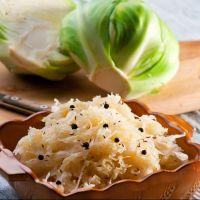
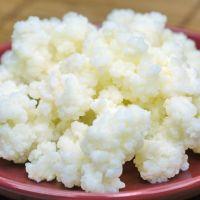

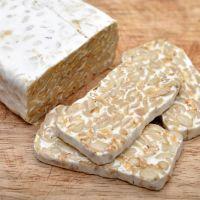

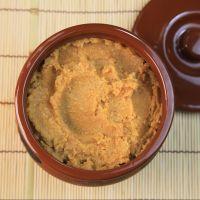

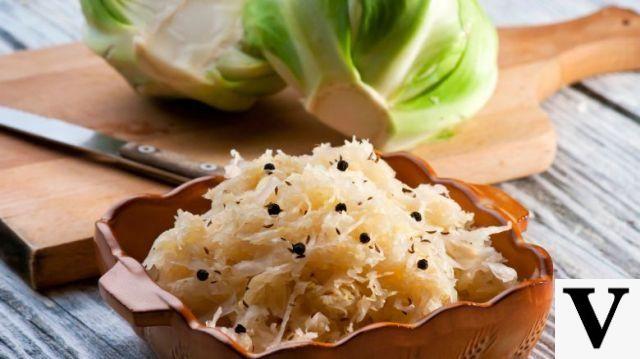
1. Sauerkraut
Widespread in South Tyrol, Austria and Germany, sauerkraut is prepared by cutting the white cabbage leaves into thin strips, which are then arranged in layers, with salt, pepper and herbs, in wooden drums (or in an earthenware dish. ) and let it ferment for about 1 month.
In home preparation, no bacterial cultures are added, only food companies do it to accelerate and optimize fermentation. Thanks to the good content of prebiotics (fibers) and probiotics (enzymes), as well as digestive enzymes, sauerkraut stimulates the proper functioning of the stomach and intestines.
Consume it like this: add them to your salads or other cold dishes. Or serve them as a side dish paired with meat. The most classic preparation? Sauerkraut (pork) and sauerkraut.
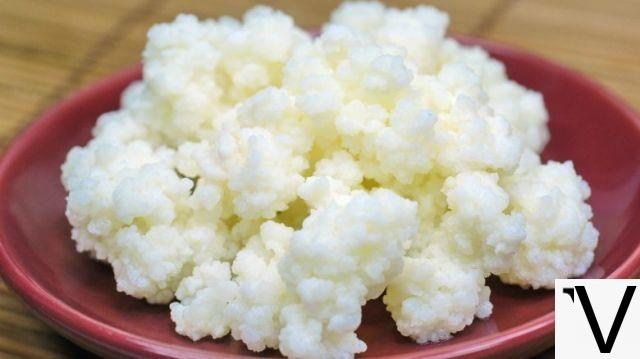
2. Kefir
It is a drink of Caucasian origin based on milk or flavored water or vegetable drink, to which a special culture of bacteria is added (which you can buy online).
It has a sweet aroma, a sour taste and a grainy texture. Kefir is rich in protein and low in lactose (completely absent in the vegan versions). If prepared with milk, it has nutritional characteristics very similar to those of yogurt.
Consume it like this: the water-based one can also be used to enrich fruit and vegetable extracts or centrifuged.

3. Yogurt
It is a food rich in vitamins and minerals, especially calcium. The Greek one, poured, also boasts a good protein content (9-10 g against the 3-4 g of the classic one).
Consume it like this: prefer it plain white, without adding milk cream or sugars. You can enrich it, to taste, with fresh fruit in chunks, oat flakes, walnuts or almonds, a little extra dark chocolate and a teaspoon of oil seeds (flax, hemp, sunflower, sesame ...).
You'll get your fill not only of calcium, but also of vitamin E, vitamin C, beta-carotene, antioxidants and good fats. You can also use yogurt, instead of cream, as an ingredient for the preparation of sauces or light desserts.
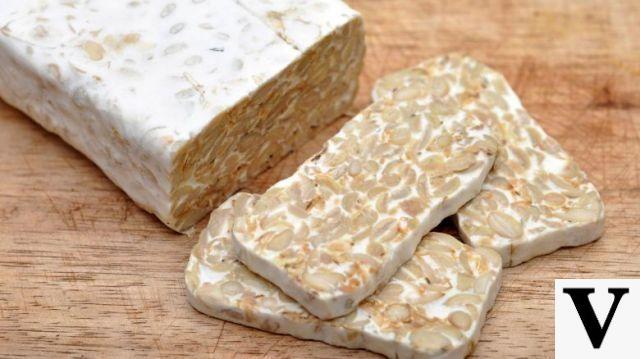
4. Tempeh
Made from yellow soybeans, soaked, cooked and fermented thanks to the spores of the Rhizopus Oligosporus mushroom, this food is very popular in Indonesia and other Southeast Asian nations. 100 g of tempeh provide few calories (about 166) and a good amount of protein (20,7%), which is why it is called "soy meat" and is often the protagonist of vegan diets.
Consume it like this: try it sliced or diced and stir-fried until crisp and golden. Tempeh can also be grated and added to soups, salads, sandwiches.

5. Beer
The traditional ingredients for making this popular drink are water, barley, hops and yeast, which is poured into the wort to make it ferment.
Beer contains vitamins and minerals (calcium and phosphorus in particular). It is also rich in polyphenols, with a strong antioxidant action. Do not forget, however, that it is an alcoholic drink, lighter than wine, but still to be drunk in moderation.
Consume it like this: it is good to drink alone or to accompany meals (as long as it does not exceed 330 ml, equal to one can, per day). You can also use beer as an ingredient for meat recipes (try it to cook ribs or pork loin) or vegetarian, such as risotto.

6. Miso
It is a typical Japanese condiment obtained thanks to the long fermentation (up to 24 months) of soybeans with salt and Koji (a mushroom of the Aspergillus oryzae species).
Miso can also be made with rice, barley, or other ingredients. It has the appearance of a dark paste, more or less dense depending on the quality. With its characteristic aroma and flavor, it is made up of a good 12-14% of proteins that are already partially "digested" (and therefore more assimilable). It also contains trace elements, vitamins, enzymes and minerals, such as calcium and magnesium, useful for reducing blood acidity.
Consume it like this: dissolve it in a little warm water (in this way you will keep its rebalancing qualities intact) and add it, with the flame out, to your dishes. It is ideal for flavoring soups and broths. The most famous dish is miso soup, made from vegetables.


























